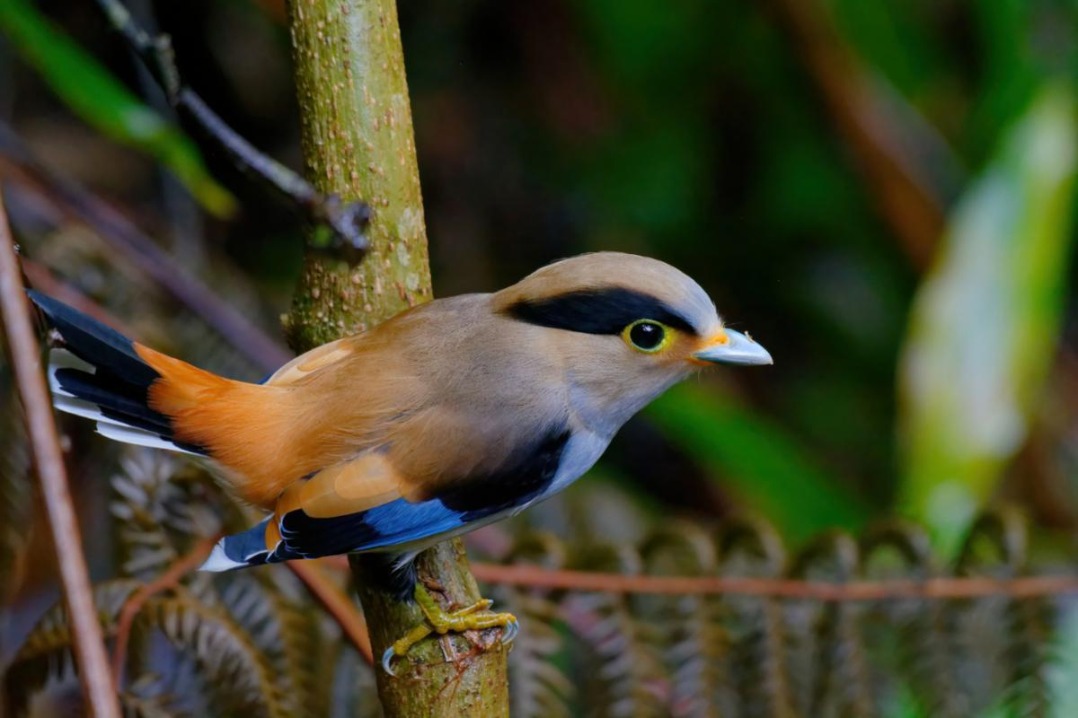Top geneticist honored for boosting grain production

Li Zhensheng, a prominent Chinese geneticist and academician of the Chinese Academy of Sciences, was awarded the nation's top honor for his contributions in cultivating high-yield wheat varieties and boosting China's grain production.
According to an order recently signed by President Xi Jinping, Li, 93, was among the four distinguished figures awarded the Medal of the Republic, the country's top honor, as the People's Republic of China marks the 75th anniversary of its founding.
With a scientific career spanning over 70 years, Li has been instrumental in advancing agricultural science, focusing on promoting new wheat varieties and increasing yields to ensure the nation's food security.
Li spent 31 years working in northwestern China, where he pioneered the development and promotion of disease-resistant and high-yield wheat varieties — the Xiaoyan series — through distant hybridization techniques.
Born in 1931 in Zibo, Shandong province, Li witnessed the devastating famine of the early 1940s and the experience ingrained in him a deep respect for food and a determination to ensure that Chinese people never go hungry.
"I got enough food to eat and the chance to go to university, which I could not expect when I was a child," Li said, adding that he was determined to contribute to the country that raised him.
After graduating from Shandong Agricultural College in 1951, Li began his research at the CAS, initially focusing on forage crops and later turning his attention to wheat.
In the 1950s, wheat stripe rust plagued China's Yellow River Basin, causing annual crop losses of more than 5 million metric tons.
The solution lay in crossbreeding foreign disease-resistant wheat strains with local varieties, but the new hybrids lost their resistance within an average of five years, while developing new varieties took about eight years.
Drawing on his experience with forage crops, Li proposed a bold idea — crossbreeding wheat with wild grasses to create a more resilient variety.
Over two decades of relentless experimentation led to the successful development of the Xiaoyan wheat series.
The high-yield, disease-resistant varieties, including Xiaoyan-6, which is resistant to eight strains of wheat stripe rust, became foundational to China's wheat breeding programs.
By 2003, over 20 million hectares of Xiaoyan wheat had been cultivated across China, yielding over 7.5 million tons of additional grain.
Li also developed a chromosome engineering breeding system that reduced the distant hybridization process from several decades to just three years, significantly enhancing breeding efficiency.
In 1987, as vice-president of CAS, Li spearheaded a project to rehabilitate low-yielding farmland in the North China Plain. With the efforts of more than 400 technicians over six years, the project resulted in an increase of more than 25 million tons of grain.
Li also authored a report outlining strategies for increasing China's grain production by 50 million tons, which was instrumental in shaping national agricultural policies in the late 1990s.
In 2003, he responded to declining grain production in China by proposing measures to achieve a recovery in output within three years. He also launched a project to increase the grain output on salinealkali land in 2011.
Despite his many accolades, including being elected as a CAS academician in 1991 and receiving China's highest scientific and technological award in 2007, Li continued to focus on ensuring that China could feed its people.
Li also emphasized the training of the next generation of scientists. He personally guided his students through the meticulous process of wheat cultivation, selecting the best varieties and fostering rigorous research practices.
He also donated his award prize to establish a student scholarship fund.
Though no longer able to work in the fields, Li continues to mentor younger researchers and stays informed about the progress of distant hybridization wheat cultivation.
"One person can only achieve limited goals in a lifetime, so you must set clear and concentrated goals, choosing your work in line with the nation's needs," Li said.
- Xi attends carrier's commissioning
- Senior Xi'an official facing probe by China's anti-corruption watchdogs
- Philippines risks creating trouble for itself: China's defense ministry
- Newborn with congenital heart disease receives life-saving surgery in Yunnan
- Hong Kong charity signs diplomatic talent deal with Beijing university
- Aircraft carrier Fujian, commissioned




































